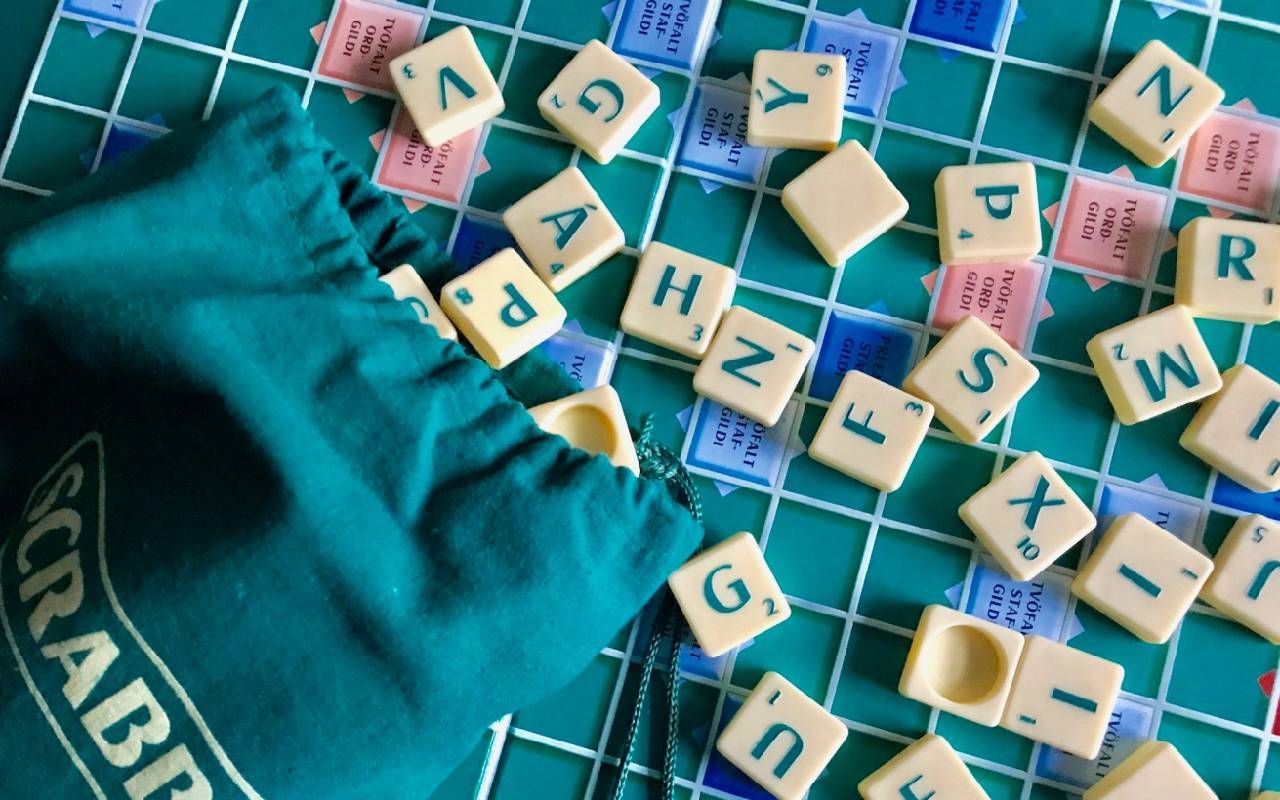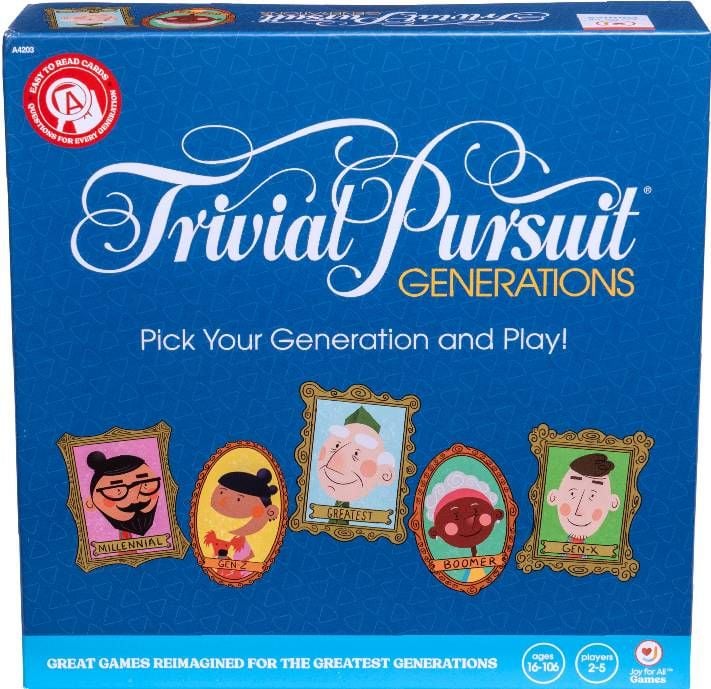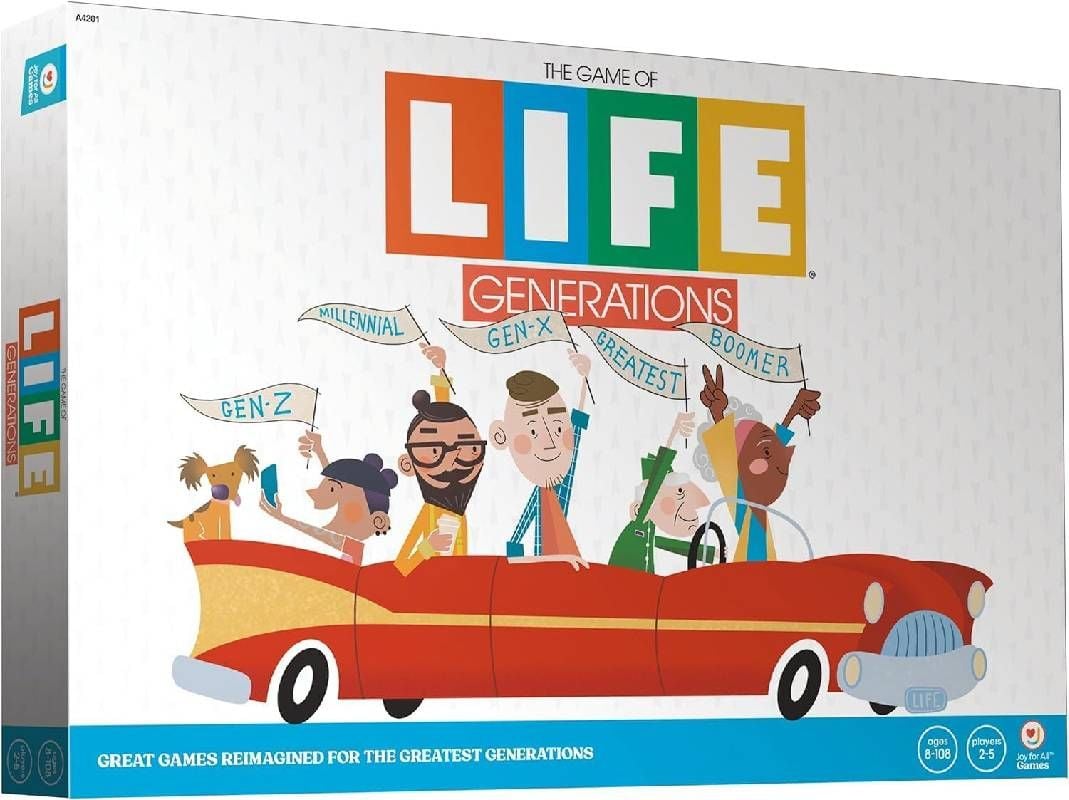Familiar Board Games Get an Intergenerational Refresh
Making The Game of Life and Trivial Pursuit more timely, fun and speedy
Odds are, you played The Game of Life as a kid and Trivial Pursuit when that board game hit the shelves in 1981 but haven't rolled the dice with either one since. New versions — reinvented for older adults to compete against their grown children and grandkids — might get you back.

That's because of a request the games' maker, Hasbro, had for its then vice president for business development, Ted Fischer, and his Joy for All division, which had created interactive, battery-operated Companion Pets for lonely and isolated older people.
Reimagining Iconic Board Games
"Hasbro said, 'We are hearing some feedback that our board games are not as inclusive or as easy to play as they could be. We think there's a big opportunity to sort of reimagine these iconic games for older adults and we think you should do it,'" Fischer recalled. "It took us about four seconds to say 'yes.' We think there should be fun at every stage."
"We think there's a big opportunity to sort of reimagine these iconic games for older adults and we think you should do it."
Studies have shown that board games can create meaningful connections for older adults, improve cognition and reduce the risk of dementia.
Joy for All was given access to Hasbro's entire games catalog and decided to focus on The Game of Life, Trivial Pursuit and Scrabble. (Joy for All is now part of a company that Fischer cofounded and runs, Ageless Innovation).
Before updating the games, "we did a lot of testing with things that were either frustrating [for players] or were opportunities," said Brian Shulman, an Ageless Innovation consultant.
When interns were asked to play the old Game of Life with their families, the participants stopped halfway through because they didn't find it fun. That cued the game reinventors to get to work to make The Game of Life — as well as Trivial Pursuit and Scrabble — more fun, faster and more intergenerational.
Making Games More Fun, Less Frustrating
The result is the recent rollout of The Game of Life Generations, Trivial Pursuit Generations and Scrabble Bingo whose boxes say they're for players aged 8 to 108 (Game of Life Generations and Scrabble Bingo) and 16 to 106 (Trivial Pursuit). Last fall, AARP and Ageless Innovation held hundreds of Reach Out and Play events around the country.
Brian Shulman, an Ageless Innovation consultant, said the new versions reimagined the earlier games in two ways: functionality and content.
"Sometimes, the fun of it is not playing as your own generation."
Improved functionality meant increasing the font size and contrast on cards; making game pieces easier to grasp, sometimes three-dimensional and offering short instructional YouTube videos for people who didn't want to read through the rules of play.
The games are also much quicker than previous versions since today's players are often time-crunched and with shorter attention spans than in the past. Two of the three ways to play Scrabble Bingo can be completed in under 15 minutes. The Game of Life Generations takes about 45 minutes.
To make Trivial Pursuit and The Game of Life intergenerational, the new versions are peppered with pop culture references keyed to boomers, Gen Xers, millennials, Gen Zers and the Silent Generation.
Trivial Pursuit Generations has 1,500 questions and each card has ones specifically for all five generations.
For instance, one card has a question for the Silent Generation about the Allied invasion of Normandy; for boomers about LBJ's War on Poverty; for Xers about "The Troubles" in Northern Ireland; for millennials about the tech giants known as FAANG and for Gen Zers about Dr. Oz running for the Senate in 2022.
The Trivia Can Get Personal
You can also ask each other personal trivia questions since 30% of the cards are blank, with a cue on it such as asking about a player's first kiss or first job.

You don't have to play as the generation you are. "Sometimes, the fun of it is not playing as your own generation," Shulman said.
The Game of Life Generations has Action cards with options varying on which generation a player chooses. "As a boomer, you get coupon cards. If you're a millennial, you get side-hustle cards," said Fischer.
But the references, intended to be humorous, occasionally smack of ageism. A Greatest Generation member can be told "You forgot how to use your phone again;" a boomer can get a card saying, "You're struggling with the presentation again. Stupid technology. Stupid millennials laughing at you."
A New Take on Retirement
As in many earlier versions of The Game of Life — called The Checkered Game of Life when that depressing one was introduced in 1860 — retirement is the goal. To get there, the Generations version has cards playing into today's real world.
You can now choose a life path either with a career requiring a college education (like lawyer or architect) or one that may not (like firefighter or florist). Your real estate purchase can be anything from a $100,000 tiny home to a $600,000 city penthouse.
After all players retire, the wealthiest one wins. "It isn't retire and your life is over or you become destitute," said Shulman.
That's a much different view of retirement from the 1960's Game of Life. In that one, if a player tried to become a Millionaire Tycoon, a bad spin of the wheel would send them to the Poor Farm and out of the game.
Intergenerational Games

The company has also launched two memory-card games based on reminiscence therapy: the photo-matching game Past & Present Pairs and the chronology one Lifetime Lineup. Both are for two to six players aged 8 to 108.
"The idea is to stimulate conversation and bring back memories," said Shulman.
Since Past & Present Pairs asks players to match photos of similar items from today and years ago, it's especially apt for someone with dementia to play with their child or grandchild.
"If the match is a telephone, it's an old rotary dial phone and an iPhone," Fischer said. "We've found the game elicits great conversation between generations."
Lifetime Lineup lets you write yourself or your family into the game, with blank cards to note events that happened at certain times in your lives.
What's Coming Next
Joy for All intends to re-introduce three to five Hasbro games every year, making them age-friendly and intergenerational.
Some might be played remotely on computers and tablets. "The question is: How do you do it in a way that's inclusive and easy and fun for folks to play?" Fischer said. "We think we have to have some digital versions to make them inclusive to all."


